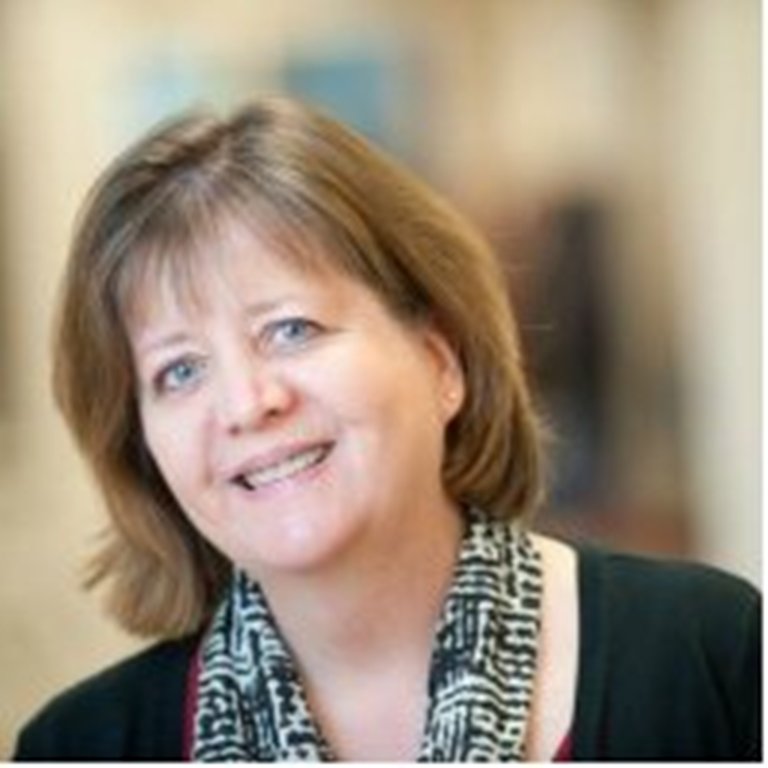Opinions Needed- Women Donor Groups
Options
Hello everyone! I need some opinions, please. One of my team members has suggested that we start a program exclusively for women. I am torn as to how I feel about that and whether or not this is even done anymore. I've been looking at organizations similar to ours and have found none of them with a women only group. Once upon a time, we had a Ladies' Auxilary but it died several years ago due to lack of interest from the "ladies who lunch" in town.
Looking for any advice or opinions or thoughts!
Thank you!
Looking for any advice or opinions or thoughts!
Thank you!
Tagged:
0
Comments
-
What would the purpose of that be? It sounds a little out of date to me. It might offend some of your women donors.0
-
Karen Stuhlfeier:
What would the purpose of that be? It sounds a little out of date to me. It might offend some of your women donors.That's sort of what I'm thinking... and that it could also offend male donors, too. I believe that my team member has read some research showing that when it comes to philanthropy, women tend to give more and are the decision makers in their households, therefore we need a group specifically for them.
I'm of the opinion that creating any group that excludes others based on gender, race, etc., is probably not a good idea.
0 -
First, I should acknowledge that my previous position was at a foundation focused on strengthening women in the area by issuing grants in the areas of women's health, education and domestic violence, so I'm a bit biased; that being said, I think the experience lent me some insight into how the gender lens impacts the overall philanthropic picture.
In my opinion, this would depend a great deal on factors like the specific focus and activities of the group, who would compose the group, and how you market it. These things can make the difference between your organization being viewed as passe or progressive in connection with the group.
We have a Women's Leadership Committee here, and in fact, just had a very successful fundraising event featuring an illusionist and a rather successful silent auction and raffle. They raised considerable money, everybody had a good time, and I never heard a word about anybody viewing it as anything other than fantastic. Part of the key, I think, is that the women involved are very active, a lot gets done and the events they hold are known for being dynamic and hip. Engagement is high and the results speak for themselves.
0 -
Each non-profit's brand, ethos, and donor culture will be different -and that needs to be weighed carefully.
Research suggests that women are key decision makers or influencers in a significant majority of charitable decisions. If you don't have a specific strategy for connecting these guardians of wealth to your mission, you are missing out. However, the way you go about that needs to reflect your identity.
In my non-profit space, focused events for women tend to be part of the religious culture and are welcomed. These aren't built to exclude anyone, but focus on incorporating activities that reflect cultural and biological differences between the genders and invite those who desire to participate. If these events are pandering or patronizing, it is disrespectful and those invited ought to be offended. If events are respectful of the strengths, acumen, and success of your key female supporters. Acknowledge the unique value of their perspective and experiences as women and I think you can see huge success.0 -
A couple of things I thought to add:
First, I want to reinforce Samuel's comment regarding exclusion. You can have a focused group without being exclusive, as long as everyone understands the purpose of the work and is on the same page. Allies are important to any group of people. We're all connected. We're all different, together, as I heard it put once.
Second, some obervations from my time at the women's foundation:
THere were various giving councils based on different "identities" within the organization; there's a Women of Color council, a Young Women's council, an LBTQ Council, and a council based around an affluent neighborhood. Of these, the Young Women's and LBTQ councils are the most active and successful. Again, none of them are exclusive despite their stated foci. Here again, the key is activity and engagement. The more successful councils hold more events, meet more often, etc.0 -
I agree that it sounds a little dated. But your reasoning isn't. Stats on women and giving are relevant. I wonder if you could start a group with a good leader and didn't implicity state that it was a women's group? But if it started small and had a core group...
I also think that you may reach a only certain group of donors. The generations/genders/whatever all respond very differently to everything. For a lot of non-profits, the trend seems to be the young professionals groups these days. And I think that the more generous or active people will naturally gravitate to that group. But then older folks may feel out of place. Maybe there isn't one answer. Maybe in theory we can have committees (for lack of a better word) of women, or young professionals, or 40+, or 90+ and your donors just find the right group for them.
Ironically, 2 young professionals groups that I've worked with have both been almost solely women.0 -
We started a program two years ago called Women Engage. It has be very successful! In fact, we held our most recent event Tueday with over 100 women in attendance with our President (male) as the speaker. This event is held every other month from Sept to June. It is held on a Tuesday evening from 5pm-6pm Registration/Reception and 6pm - 7pm Speaker. Most topics are current events specific with a few being gender related. Last year we announced a Women Engage Scholarship Fund which received over $24K in contributions. Currently we have a $20K match from one of our attendees for contributions received this year. This event has grown from 45 attendees at the first event to our largest attendance of over 200. We have received nothing but positive feedback! At our event on Tuesday we actually had a husband attend because the topic was of interest to him. He understood it was a "woman's" event but said he could handle the estrogen! He was more than welcome to attend and glad he felt comfortable enough to do so!0
-
I agree that I think it depends entirely on the culture, religious/secular focus of your organization, the political majority of your donors, and the branding you place on the activity. Our nonprofit, for instance, is based within a religously conservative environment, so there are several local groups that have male/female activities, groups, and events, and all are well received. In general, our political culture favors events that empower women, even if the same may not be said about events for empowering men, and you can probably hit off a very successful women's group if the branding is well-planned. If you are concerned about backlash from gender-erasure movements, I would simply say that I attended a local Womens' Retreat, and a couple of women hauled their husbands along with them. As far as I know, nobody was checking people's birth certificates at the door to bar entry if you weren't a woman.0
-
Thanks, everyone, for all your feedback on this! We're going to be looking at all points of view before we decide whether or not to move forward. I really appreciate hearing your opinions!0
-
I agree with the others that it depends on the organization and the purpose of the group. Like the foundation that focused on women's issues, the same can be said for working at an all girls school. We did have female influencers, active women, women of recognition that were involved or got involved with the school to empower the girls on campus in their future goals and endeavors.
The example I have a particular group as it were is that one of the alums wanted to fund a scholarship and use the power of a group to do it. So -- in order to provile a full scholarship to a student over their time as a student with us. So the alum and one of our development team members worked together to gather a group of 30 women that would all pledge the same amount over the same time period to cover the tuition and expenses for one student. The project sparked interest and so every year we were adding one or two new groups of 30. Each group was referred to as a circle. The only way that they were differentiated in RE was that they had a pledge to that particular scholarship program. They did not have a special consitit code or attribute or anything. And reporting or pulling mailing lists etc. worked fine.0
Categories
- All Categories
- Shannon parent
- shannon 2
- shannon 1
- 21 Advocacy DC Users Group
- 14 BBCRM PAG Discussions
- 89 High Education Program Advisory Group (HE PAG)
- 28 Luminate CRM DC Users Group
- 8 DC Luminate CRM Users Group
- Luminate PAG
- 5.9K Blackbaud Altru®
- 58 Blackbaud Award Management™ and Blackbaud Stewardship Management™
- 409 bbcon®
- 2.1K Blackbaud CRM™ and Blackbaud Internet Solutions™
- donorCentrics®
- 1.1K Blackbaud eTapestry®
- 2.8K Blackbaud Financial Edge NXT®
- 1.1K Blackbaud Grantmaking™
- 527 Education Management Solutions for Higher Education
- 1 JustGiving® from Blackbaud®
- 4.6K Education Management Solutions for K-12 Schools
- Blackbaud Luminate Online & Blackbaud TeamRaiser
- 16.4K Blackbaud Raiser's Edge NXT®
- 4.1K SKY Developer
- 547 ResearchPoint™
- 151 Blackbaud Tuition Management™
- 1 YourCause® from Blackbaud®
- 61 everydayhero
- 3 Campaign Ideas
- 58 General Discussion
- 115 Blackbaud ID
- 87 K-12 Blackbaud ID
- 6 Admin Console
- 949 Organizational Best Practices
- 353 The Tap (Just for Fun)
- 235 Blackbaud Community Feedback Forum
- 55 Admissions Event Management EAP
- 18 MobilePay Terminal + BBID Canada EAP
- 36 EAP for New Email Campaigns Experience in Blackbaud Luminate Online®
- 109 EAP for 360 Student Profile in Blackbaud Student Information System
- 41 EAP for Assessment Builder in Blackbaud Learning Management System™
- 9 Technical Preview for SKY API for Blackbaud CRM™ and Blackbaud Altru®
- 55 Community Advisory Group
- 46 Blackbaud Community Ideas
- 26 Blackbaud Community Challenges
- 7 Security Testing Forum
- 1.1K ARCHIVED FORUMS | Inactive and/or Completed EAPs
- 3 Blackbaud Staff Discussions
- 7.7K ARCHIVED FORUM CATEGORY [ID 304]
- 1 Blackbaud Partners Discussions
- 1 Blackbaud Giving Search™
- 35 EAP Student Assignment Details and Assignment Center
- 39 EAP Core - Roles and Tasks
- 59 Blackbaud Community All-Stars Discussions
- 20 Blackbaud Raiser's Edge NXT® Online Giving EAP
- Diocesan Blackbaud Raiser’s Edge NXT® User’s Group
- 2 Blackbaud Consultant’s Community
- 43 End of Term Grade Entry EAP
- 92 EAP for Query in Blackbaud Raiser's Edge NXT®
- 38 Standard Reports for Blackbaud Raiser's Edge NXT® EAP
- 12 Payments Assistant for Blackbaud Financial Edge NXT® EAP
- 6 Ask an All Star (Austen Brown)
- 8 Ask an All-Star Alex Wong (Blackbaud Raiser's Edge NXT®)
- 1 Ask an All-Star Alex Wong (Blackbaud Financial Edge NXT®)
- 6 Ask an All-Star (Christine Robertson)
- 21 Ask an Expert (Anthony Gallo)
- Blackbaud Francophone Group
- 22 Ask an Expert (David Springer)
- 4 Raiser's Edge NXT PowerUp Challenge #1 (Query)
- 6 Ask an All-Star Sunshine Reinken Watson and Carlene Johnson
- 4 Raiser's Edge NXT PowerUp Challenge: Events
- 14 Ask an All-Star (Elizabeth Johnson)
- 7 Ask an Expert (Stephen Churchill)
- 2025 ARCHIVED FORUM POSTS
- 322 ARCHIVED | Financial Edge® Tips and Tricks
- 164 ARCHIVED | Raiser's Edge® Blog
- 300 ARCHIVED | Raiser's Edge® Blog
- 441 ARCHIVED | Blackbaud Altru® Tips and Tricks
- 66 ARCHIVED | Blackbaud NetCommunity™ Blog
- 211 ARCHIVED | Blackbaud Target Analytics® Tips and Tricks
- 47 Blackbaud CRM Higher Ed Product Advisory Group (HE PAG)
- Luminate CRM DC Users Group
- 225 ARCHIVED | Blackbaud eTapestry® Tips and Tricks
- 1 Blackbaud eTapestry® Know How Blog
- 19 Blackbaud CRM Product Advisory Group (BBCRM PAG)
- 1 Blackbaud K-12 Education Solutions™ Blog
- 280 ARCHIVED | Mixed Community Announcements
- 3 ARCHIVED | Blackbaud Corporations™ & Blackbaud Foundations™ Hosting Status
- 1 npEngage
- 24 ARCHIVED | K-12 Announcements
- 15 ARCHIVED | FIMS Host*Net Hosting Status
- 23 ARCHIVED | Blackbaud Outcomes & Online Applications (IGAM) Hosting Status
- 22 ARCHIVED | Blackbaud DonorCentral Hosting Status
- 14 ARCHIVED | Blackbaud Grantmaking™ UK Hosting Status
- 117 ARCHIVED | Blackbaud CRM™ and Blackbaud Internet Solutions™ Announcements
- 50 Blackbaud NetCommunity™ Blog
- 169 ARCHIVED | Blackbaud Grantmaking™ Tips and Tricks
- Advocacy DC Users Group
- 718 Community News
- Blackbaud Altru® Hosting Status
- 104 ARCHIVED | Member Spotlight
- 145 ARCHIVED | Hosting Blog
- 149 JustGiving® from Blackbaud® Blog
- 97 ARCHIVED | bbcon® Blogs
- 19 ARCHIVED | Blackbaud Luminate CRM™ Announcements
- 161 Luminate Advocacy News
- 187 Organizational Best Practices Blog
- 67 everydayhero Blog
- 52 Blackbaud SKY® Reporting Announcements
- 17 ARCHIVED | Blackbaud SKY® Reporting for K-12 Announcements
- 3 Luminate Online Product Advisory Group (LO PAG)
- 81 ARCHIVED | JustGiving® from Blackbaud® Tips and Tricks
- 1 ARCHIVED | K-12 Conference Blog
- Blackbaud Church Management™ Announcements
- ARCHIVED | Blackbaud Award Management™ and Blackbaud Stewardship Management™ Announcements
- 1 Blackbaud Peer-to-Peer Fundraising™, Powered by JustGiving® Blogs
- 39 Tips, Tricks, and Timesavers!
- 56 Blackbaud Church Management™ Resources
- 154 Blackbaud Church Management™ Announcements
- 1 ARCHIVED | Blackbaud Church Management™ Tips and Tricks
- 11 ARCHIVED | Blackbaud Higher Education Solutions™ Announcements
- 7 ARCHIVED | Blackbaud Guided Fundraising™ Blog
- 2 Blackbaud Fundraiser Performance Management™ Blog
- 9 Foundations Events and Content
- 14 ARCHIVED | Blog Posts
- 2 ARCHIVED | Blackbaud FIMS™ Announcement and Tips
- 59 Blackbaud Partner Announcements
- 10 ARCHIVED | Blackbaud Impact Edge™ EAP Blogs
- 1 Community Help Blogs
- Diocesan Blackbaud Raiser’s Edge NXT® Users' Group
- Blackbaud Consultant’s Community
- Blackbaud Francophone Group
- 1 BLOG ARCHIVE CATEGORY
- Blackbaud Community™ Discussions
- 8.3K Blackbaud Luminate Online® & Blackbaud TeamRaiser® Discussions
- 5.7K Jobs Board














